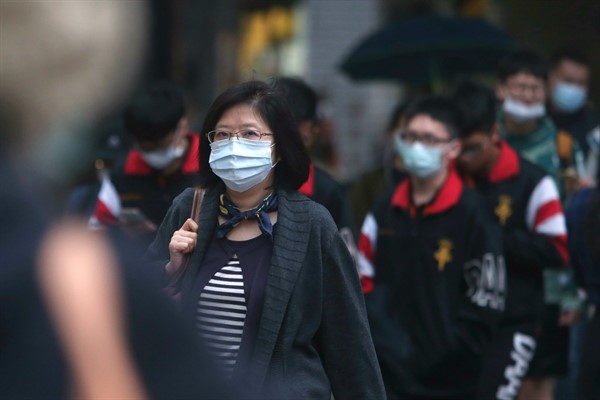When members of the World Health Organization convene via video conference next week for the 73rd annual World Health Assembly, they will largely focus on the unprecedented challenges posed by the coronavirus pandemic. But despite earning plaudits for its success in containing its COVID-19 outbreak, Taiwan will not be dialing in.
China has long pressured other states to exclude Taiwan from the WHO, along with other United Nations bodies, because it considers Taiwan to be a rebellious province of China rather than a sovereign nation. Beijing did allow Taiwan to attend the World Health Assembly as an observer during a thaw in relations under former Taiwanese President Ma Ying-jeou, who favored warmer ties with the mainland. But Ma was replaced in 2016 by Tsai Ing-wen, who takes a firmer stance toward Beijing. After Tsai’s election, China subsequently moved to strip Taiwan of its observer status at the WHO.
Now, amid the coronavirus pandemic, Taiwan’s exclusion has taken on new geopolitical meaning. President Donald Trump has increasingly tried to deflect criticism of his own slow response to COVID-19 by pinning the blame on China and the WHO. In the process, he has argued that the WHO is too “China-centric,” and that it excluded Taiwan from its pandemic response after being pressured by Beijing—accusations that he used to justify his decision to pull U.S. funding from the WHO last month. Taiwanese officials have also spoken out about their government’s exclusion from the WHO’s response efforts, and have thanked the United States for its support.

